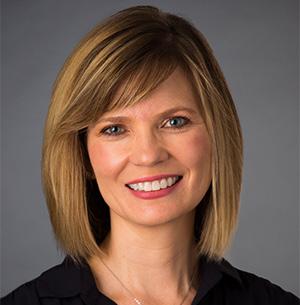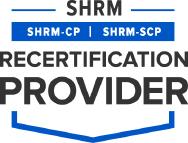EMPOWERING AND MOTIVATING HIGH-PERFORMANCE TEAMS



Working in teams can promote efficiency, creativity, diversity, critical thinking, synergy, and rewarding workplace relationships. However, working in teams can also leave team members feeling frustrated, alienated, voiceless, and confused. While no one formula can guarantee team success, research reveals the effective and ineffective practices for successful communication among teams. In this course, you will learn methods for managing diverse communication styles and helping your team and organization tap into the full measure of their resources.
Understand the value teamwork brings to a group and an organization, why we resist teams, and how skills such as feedback, trust, and effective listening can develop a team’s purpose and further the group’s mission and impact. In this program, learn about these practices and reach personal and organizational goals while becoming the leader you aspire to be.
This class can count towards the Executive Leadership Certificate. The Executive Leadership Certificate is highly customizable. Choose any of our 6 leadership classes to receive the full certificate.

The Executive Leadership Certificate covers both soft skills and hard skills necessary to lead organizations. If you are in a mid- to senior-level position and want to grow in your organization or make a career change, this certificate is right for you. If you are an individual who wants to understand business from multiple angles and develop your leadership skills, this certificate is also right for you.
Topics Covered
• Effective communication patterns
• Strategies for tapping into your team’s full resources
I Need This Program Because:
• I want to learn how to work with others who have different communication styles
• I want to utilize feedback effectively and be able to give constructive feedback
• I want to mediate conflict, navigate conversations, and know how to use conflict productively
• Effects of conflict & collaboration on success and individual satisfaction
• Promoting an open organizational climate
My Organization Needs This Program Because:
• We want to learn how to manage others with different communication styles
• We want to provide feedback in a manner that allows employees to grow and be more effective
• We want to build a collaborative team by setting clear standards and modeling collaboration
• Employees who want to create a better team atmosphere and mediate conflict
• Employees in a leadership capacity want to set a collaborative work environment and understand how to manage diversity
• Why do we have teams? Why do we resist teams?

• Effective patterns of communication
• Business chemistry styles
• Practices of great listeners
• Creating dependability, trust, meaning, and impact in your team or organization
• Gender lense of leadership styles
• Flex your language muscle
• Being appropriately assertive
• Case study: HBR
• Receiving and giving feedback
• Psychological factors of feedback: selfserving bias, fundamental attributional error, false consensus bias
• Providing corrective suggestions
• Providing positive feedback
• Conflict styles and the positives of conflicts
• Accountability conversations
• Mind management
• Building collaborative teams
Presenting Faculty | Jennifer Cummings, Ph.D.
Jennifer Cummings is an Associate Professor in the Management Department at the David Eccles School of Business. Her research and teaching areas include interpersonal and professional communication, conflict management, leadership, emotional intelligence, public speaking, self-presentation and image management, and team relations. She is a certified conflict mediator and certified emotional intelligence consultant.

The David Eccles School of Business enrolls about 6,000 students in its eight undergraduate majors, four MBAs, seven other specialized graduate programs, one Ph.D. program, and executive education curricula. It is also home to seven institutes and centers that support an ecosystem of entrepreneurship, technology, and innovation, including the Lassonde Entrepreneur Institute, Ken C. Gardner Policy Institute, Sorenson Impact Center, and more.

Our faculty members boast impressive professional and educational backgrounds and hold Ph.D.s from esteemed universities including the University of Pennsylvania’s Wharton School, Northwestern University’s Kellogg School, Harvard Business School, Stanford Graduate School of Business, and University of California at Berkeley’s Haas School.

Telephone: (801) 587-7273
Email: ExecEd@Utah.edu
Website: ExecEd.Utah.Edu
Registration: Eccles.Secure.Force.com/ExecEdApplication

1731 E Campus Center Drive
Robert H. and Katharine B. Garff Building, GARFF 4340 Salt Lake City, Utah 84112
042321